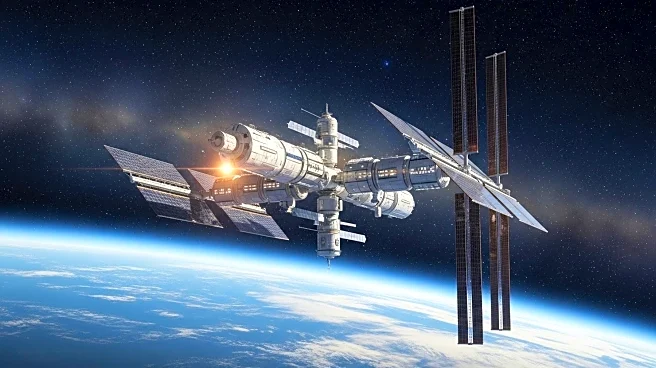What is the story about?
What's Happening?
NASA has announced plans to retire the International Space Station (ISS) by 2030, paving the way for a new era of commercial space stations. The ISS has been a cornerstone of human space exploration, providing critical insights into living and working in microgravity. As the ISS approaches its end, NASA is encouraging private companies to develop new space stations through its Commercial Low Earth Orbit Destinations (CLD) program. A Phase 2 call for proposals is set for late 2025, with winners to be announced in early 2026. Companies like Axiom Space, Starlab Space, Orbital Reef, and Vast are leading contenders in this emerging market, each with unique plans for their stations.
Why It's Important?
The retirement of the ISS marks a significant shift in space exploration, transitioning from government-led initiatives to commercial ventures. This change is expected to stimulate innovation and reduce costs, as private companies compete to provide services previously managed by NASA. The development of commercial space stations could enhance research capabilities, support long-duration missions, and foster international collaboration. However, this transition also poses challenges, such as ensuring safety standards and managing geopolitical implications, especially as China's Tiangong station gains prominence.
What's Next?
NASA's Phase 2 solicitation will be issued in late 2025, with multiple Space Act Agreements awarded in early 2026. These agreements will fund the design and demonstration of new stations, including a crewed demonstration lasting at least 30 days. The agency plans to buy 'station services' through competitive contracts in Phase 3. As private companies advance their projects, NASA must balance oversight with flexibility to foster a competitive marketplace while maintaining safety and reliability.
Beyond the Headlines
The shift to commercial space stations raises questions about regulatory frameworks and international cooperation. Experts suggest NASA should qualify rather than certify these stations to avoid delays and high costs. This approach would set performance standards while allowing companies to innovate. Additionally, the geopolitical landscape may shift if China's Tiangong becomes the sole long-term outpost in low Earth orbit, influencing global space policy and collaboration.















